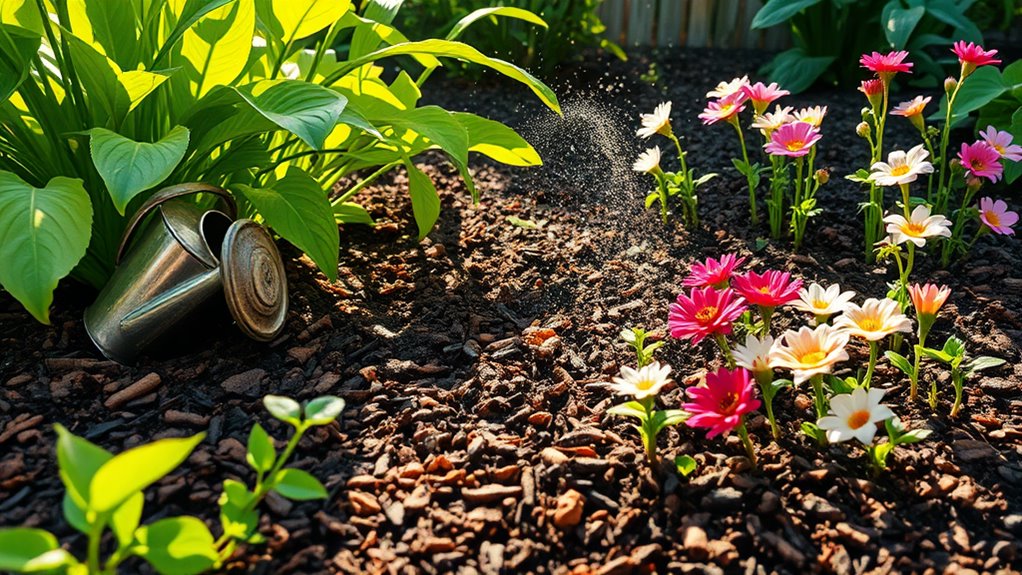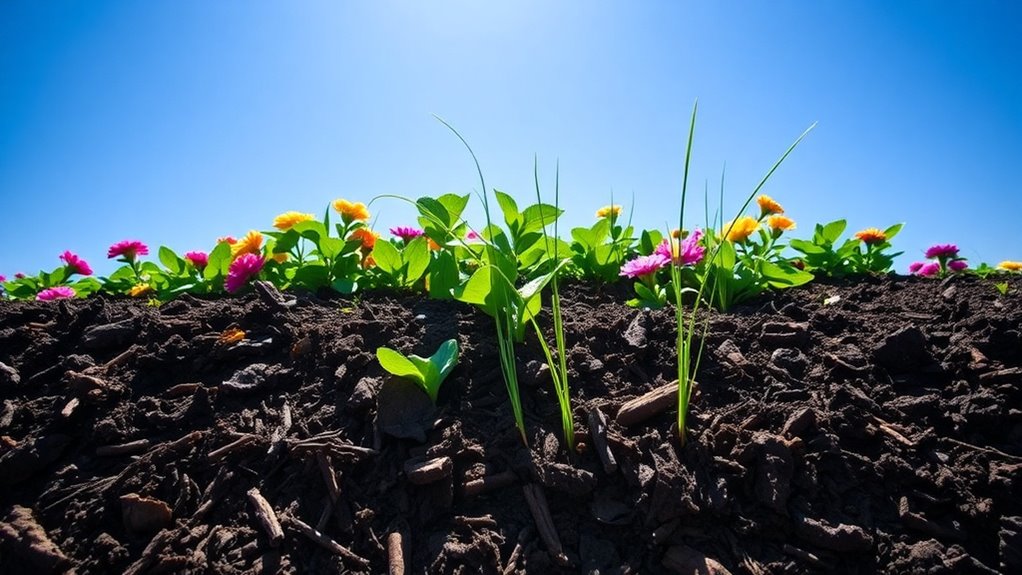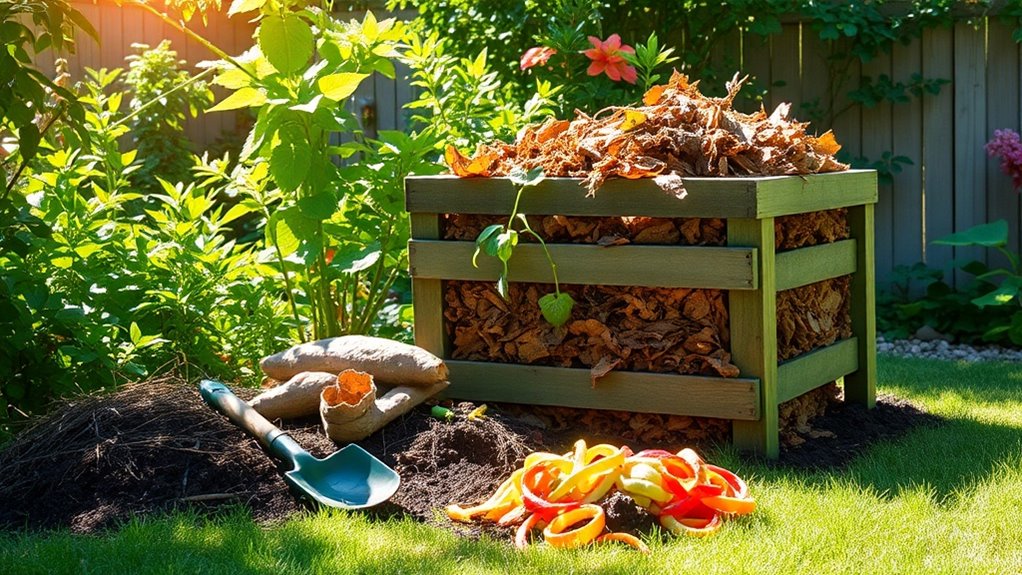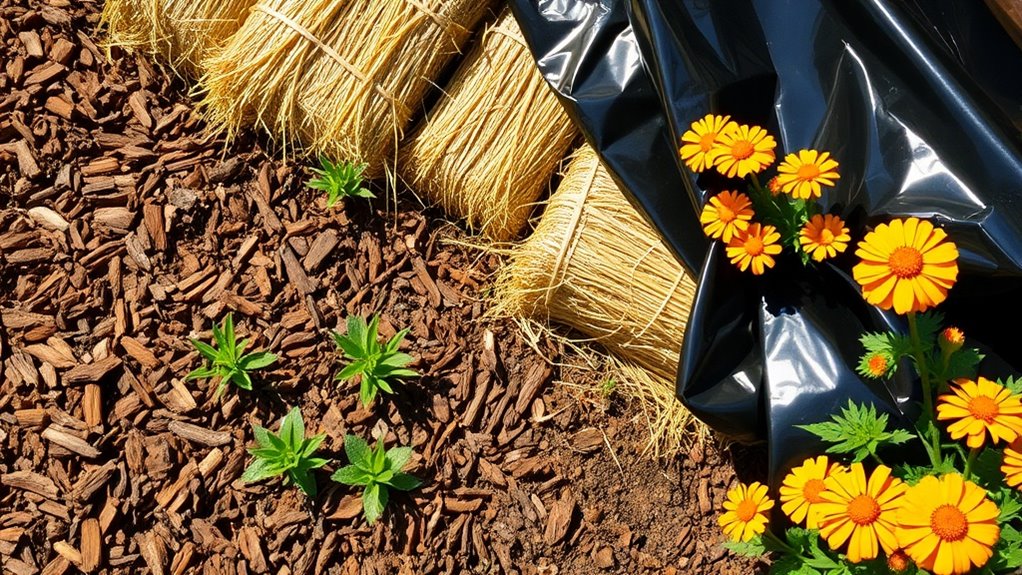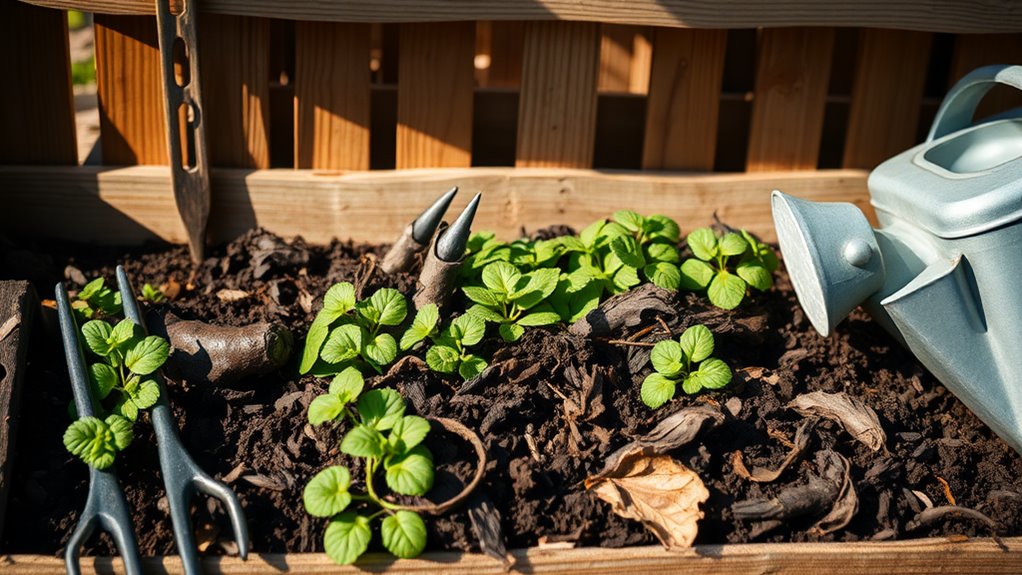Why Mulching Was the Game-Changer My Garden Needed
If you’re looking to transform your garden, consider the impact of mulching. It’s not just about aesthetics; mulching offers practical benefits that can significantly enhance your plants’ health. By retaining moisture and suppressing weeds, it creates an environment where your garden can thrive. But not all mulches are created equal, and understanding your options and techniques can make all the difference. Let’s explore how these choices can lead to a revitalized garden landscape.
Understanding the Benefits of Mulching
Mulching serves as a protective blanket for your garden, offering a multitude of benefits that can enhance plant health and soil quality.
To maximize these advantages, consider these garden mulch tips: it conserves moisture, suppresses weeds, and regulates soil temperature.
Additionally, organic mulch enriches the soil as it decomposes, fostering beneficial organisms that contribute to your garden’s vibrant ecosystem. Furthermore, using mulch can unlock the power of mulching to create a thriving environment for your plants throughout the growing season.
Types of Mulch: Choosing the Right Option
How do you decide which type of mulch is best for your garden?
Consider organic options like wood chips or straw for moisture retention and nutrient enrichment. Alternatively, inorganic choices such as gravel or rubber provide durability and weed prevention. Assess your garden’s needs, climate, and the plants you’re cultivating to make an informed decision that promotes healthy growth and minimizes maintenance. Additionally, using mulch can significantly improve soil health and support the overall ecosystem in your garden.
Proper Mulching Techniques for Maximum Effect
Choosing the right type of mulch sets the stage for successful garden maintenance, but applying it properly plays a vital role in maximizing its benefits.
Spread a layer two to four inches thick, ensuring it doesn’t touch plant stems. Regularly check for compacting and replenish as needed. This practice conserves moisture, suppresses weeds, and maintains even soil temperatures for your garden’s thriving ecosystem. Additionally, the use of different mulch types can enhance soil health and support plant growth significantly.
How Mulching Improves Soil Health
Enhancing soil health is one of the most significant benefits of adding mulch to your garden.
Mulch enriches the soil by breaking down into organic matter, increasing nutrient availability. It retains moisture, reducing the need for frequent watering and encouraging beneficial microbial activity. Additionally, fall mulching helps to insulate plant roots against extreme temperature fluctuations during winter.
Mulch as a Weed Control Strategy
While weeds can quickly overtake a garden and compete for essential nutrients, using mulch effectively serves as a powerful strategy for weed control. It suppresses weed growth, retains moisture, and enhances soil health.
Here’s a breakdown of mulch benefits for weed control:
| Benefit | Description |
|---|---|
| Suppresses Weeds | Creates a barrier, limiting sunlight. |
| Moisture Retention | Keeps soil hydrated, reducing stress. |
| Enhances Soil Health | Decomposes into organic matter. |
Additionally, applying mulch is an excellent way to implement eco-friendly weed control methods that reduce reliance on chemical herbicides.
Seasonal Considerations for Mulching
As the seasons change, it’s important to adapt your mulching practices to suit different weather conditions and plant needs.
In spring, use lighter mulches to retain moisture and promote warmth.
Summer requires thicker layers to prevent evaporation.
In fall, consider organic options that break down over winter, enriching the soil.
Winter mulching should insulate perennials, protecting roots from freezing temperatures.
Adjust your approach for optimal results.

